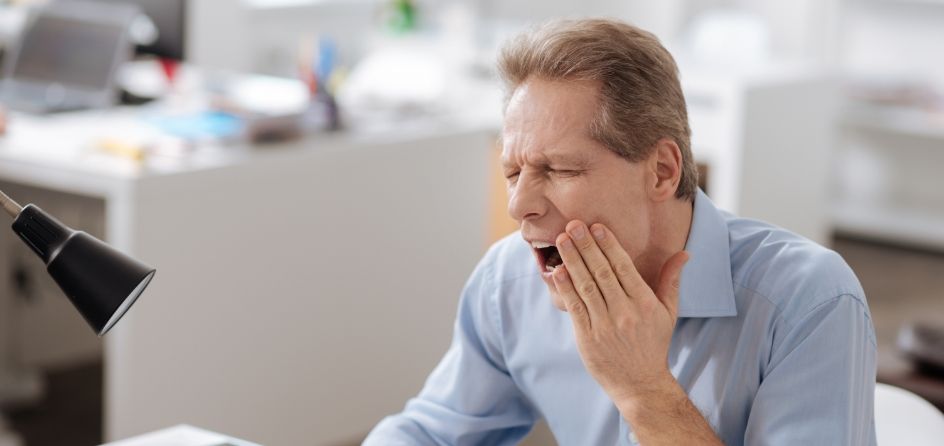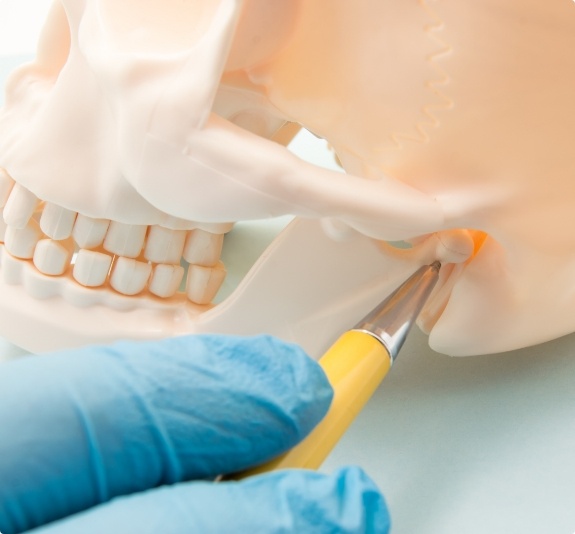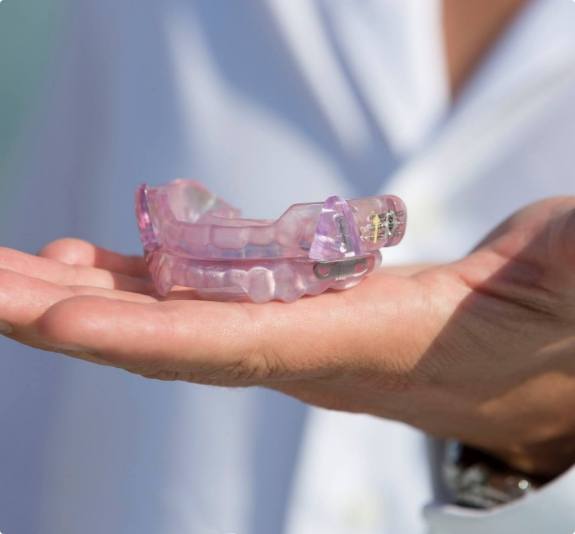TMJ Treatment Jackson
You Don’t Have to Live with Jaw Pain

The temporomandibular joints (TMJs) connect your lower jawbone to your skull and help you make the necessary movements for chewing and speaking. Any dysfunction of the TMJs (known as a TMJ disorder, or TMD) can cause chronic pain or limited movement. Luckily, Dr. Malley has a few different ways to treat TMD so that you don’t have to deal with serious discomfort on a daily basis. Give Lakeland Dental Care a call today if you think you might need TMJ treatment in Jackson soon.
Why Choose Lakeland Dental Care for TMJ Treatment?
- Occlusal Splints Fully Customized for Comfort
- State of the Art Diagnostic Technology
- Locally Owned and Operated Practice
TMJ Diagnosis & Treatment

To diagnose a TMD, we might have you open and close your mouth so that we can observe the range of motion, and we may press on specific points of your face and jaw to check for discomfort. If necessary, we might also take X-rays of the jaw joints to see how damaged they are. Then, once we’ve narrowed down the problem, we can create a potential treatment plan that will give your TMJs a chance to heal and help relieve your pain.
Occlusal Adjustments

A misaligned bite is a common cause of TMD. To address it, we can reshape your teeth so that they come together correctly throughout your mouth. This may involve removing a small amount of enamel from the teeth in question; in other cases, we might build them up with restorations instead. The goal is to restore balance to your bite so that you aren’t exposing your jaw joints to an excessive amount of pressure whenever you chew.
Occlusal Splints

Sometimes treating a TMD is as simple as wearing an occlusal splint. This is a plastic oral appliance that fits right over your teeth. It can help keep your jaw in a comfortable position to take some of the pressure off your TMJ, and it can protect your smile from bruxism (unconscious clenching and grinding of the teeth that can easily contribute to a TMD). Occlusal splints come in many types; the kind we recommend will depend on your specific needs.
